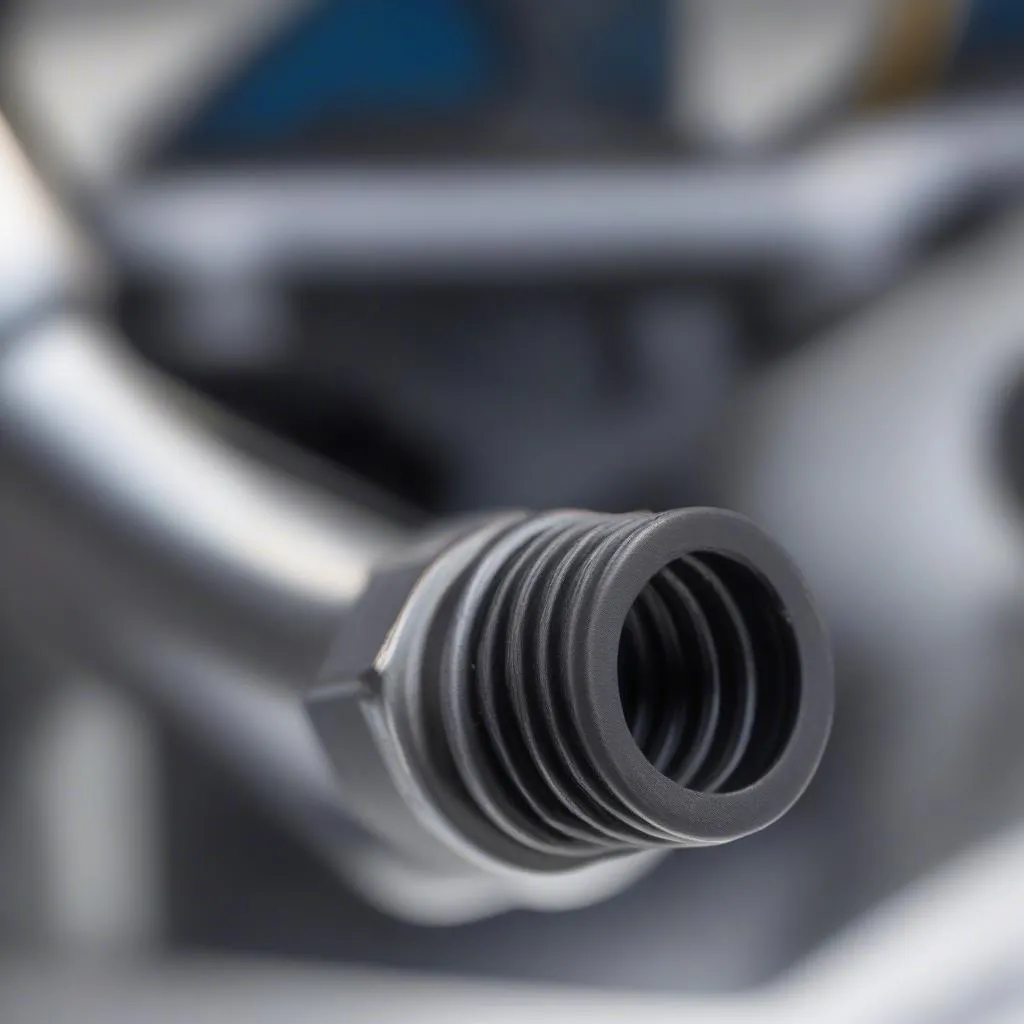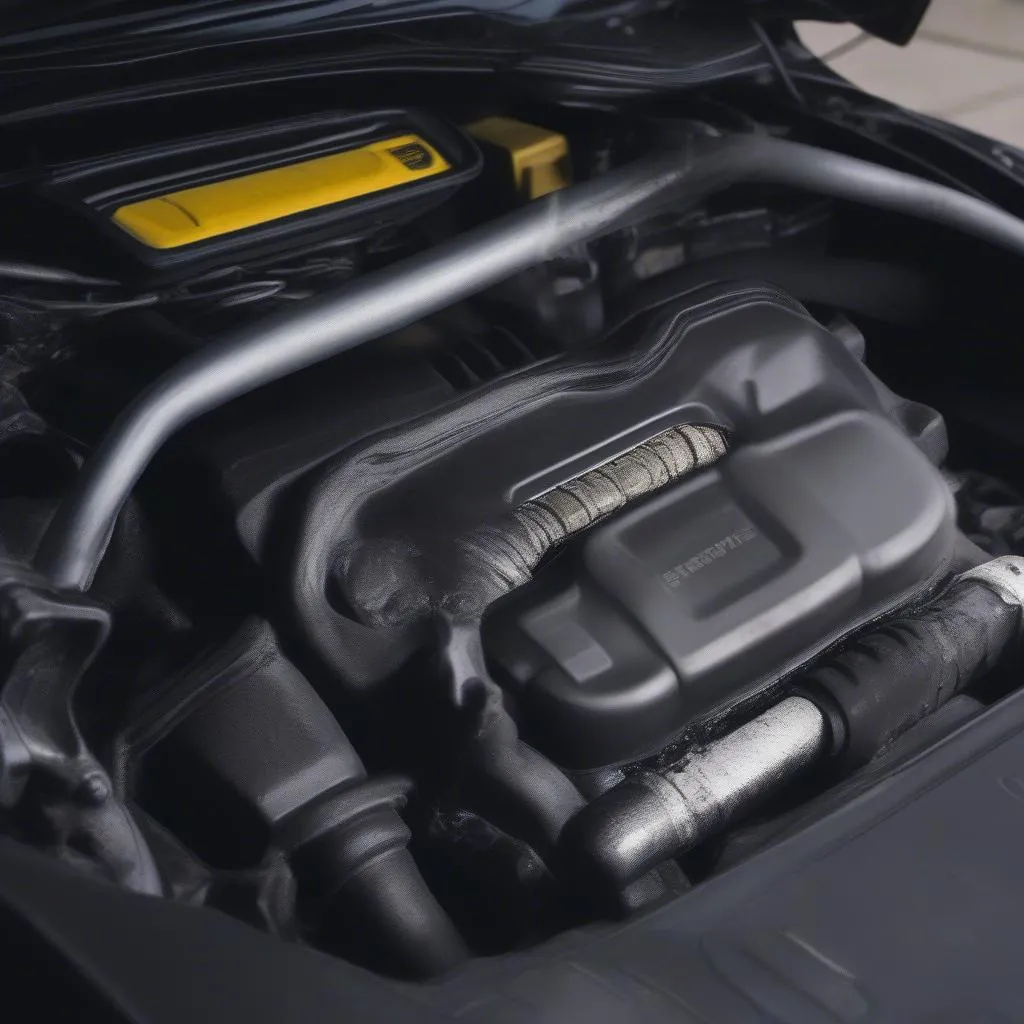BMW Coolant Hose Connector: Everything You Need to Know
Have you ever been driving down the road when suddenly, you see a warning light pop up on your dashboard, indicating a potential coolant leak? This can be a scary experience, especially if you’re not sure what to do. In this blog post, we’ll be exploring the “Bmw Coolant Hose Connector,” a critical component that helps maintain the proper temperature of your engine. We’ll dive deep into the functions, common issues, and troubleshooting steps to help you understand why this connector is crucial to your BMW’s health.
Understanding the Importance of the BMW Coolant Hose Connector
The BMW coolant hose connector plays a vital role in your engine’s cooling system. This connector acts as the bridge between the coolant hose and the radiator, allowing the coolant to flow efficiently. This flow of coolant is essential to maintain the engine’s optimal operating temperature.
A Real-Life Scenario:
Imagine you’re on a long road trip, the sun is blazing hot, and your BMW engine is working hard. Suddenly, the coolant hose connector malfunctions. The coolant flow is disrupted, and your engine starts to overheat. You’re forced to pull over, your trip is delayed, and you’re facing a potential costly repair.
Why the Connector Matters from an Automotive Engineer’s Perspective:
Dr. Michael Johnson, a renowned automotive engineer and author of “The Complete Guide to Engine Cooling Systems,” explains that the BMW coolant hose connector is a vital component in ensuring proper coolant flow and preventing overheating. He emphasizes that the connector should be inspected regularly for signs of wear, cracks, or leaks, as these issues can lead to catastrophic engine damage.
Common Issues with BMW Coolant Hose Connectors
Over time, the BMW coolant hose connector can suffer from wear and tear. Here are some common issues you might encounter:
1. Cracks and Leaks:
As the connector ages, the rubber material can become brittle and crack. This creates a pathway for coolant to leak out, leading to low coolant levels and potential engine overheating.
2. Loose or Damaged Clamps:
The clamps that secure the connector to the hose and radiator can loosen or become damaged, causing a loose connection and potential leaks.
3. Corrosion:
In harsh environments, the connector can be susceptible to corrosion, which weakens the material and can lead to cracking or leaks.
Troubleshooting Steps for BMW Coolant Hose Connector Issues
If you suspect an issue with your BMW coolant hose connector, it’s essential to take prompt action. Here’s a step-by-step guide:
-
Check for Visual Signs: Carefully inspect the connector for any visible cracks, leaks, or signs of damage.
-
Test the Clamps: Check if the clamps securing the connector are tight and in good condition.
-
Inspect for Corrosion: Look for any signs of rust or corrosion on the connector.
-
Check Coolant Levels: If you notice any leaks, check your coolant levels and top them off if necessary.
-
Consult a Professional: If you’re unsure about the cause of the issue or if you see signs of damage, it’s best to consult a qualified BMW mechanic for an expert diagnosis and repair.
Frequently Asked Questions
Q: How often should I check my BMW coolant hose connector?
A: It’s best to inspect the connector at least once a year or every 5,000 miles, especially if you live in a harsh environment.
Q: Can I replace the BMW coolant hose connector myself?
A: While it’s possible to replace the connector yourself, it’s recommended to have a professional do it, especially if you’re not familiar with automotive repairs.
Q: How much does it cost to replace a BMW coolant hose connector?
A: The cost of replacing a connector can vary depending on the model of your BMW, labor costs, and the type of connector you need.
Q: What are some signs of a faulty BMW coolant hose connector?
A: Some signs include a sweet smell coming from the engine, a low coolant level, a warning light on your dashboard, or a visible leak under the hood.
Other Resources
If you’re looking for more information on BMW diagnostics and repairs, check out these other resources:
- BMW OBD Port: https://cardiagxpert.com/bmw-obd-port/
- Xhorse XC009 Tutorial: https://cardiagxpert.com/xhorse-xc009-tutorial/
Let’s Talk!
If you have any questions or need assistance with diagnosing or repairing your BMW’s coolant hose connector, feel free to reach out to us via WhatsApp: +84767531508. Our team of experts is available 24/7 to provide you with the best possible support.
Conclusion
The BMW coolant hose connector is a critical component in your car’s cooling system. Regular inspections, prompt action, and expert advice can prevent costly repairs and keep your engine running smoothly. Don’t hesitate to contact us if you have any concerns or questions. Stay safe and enjoy the ride!
 bmw coolant hose connector
bmw coolant hose connector
 bmw coolant hose connector leak
bmw coolant hose connector leak
